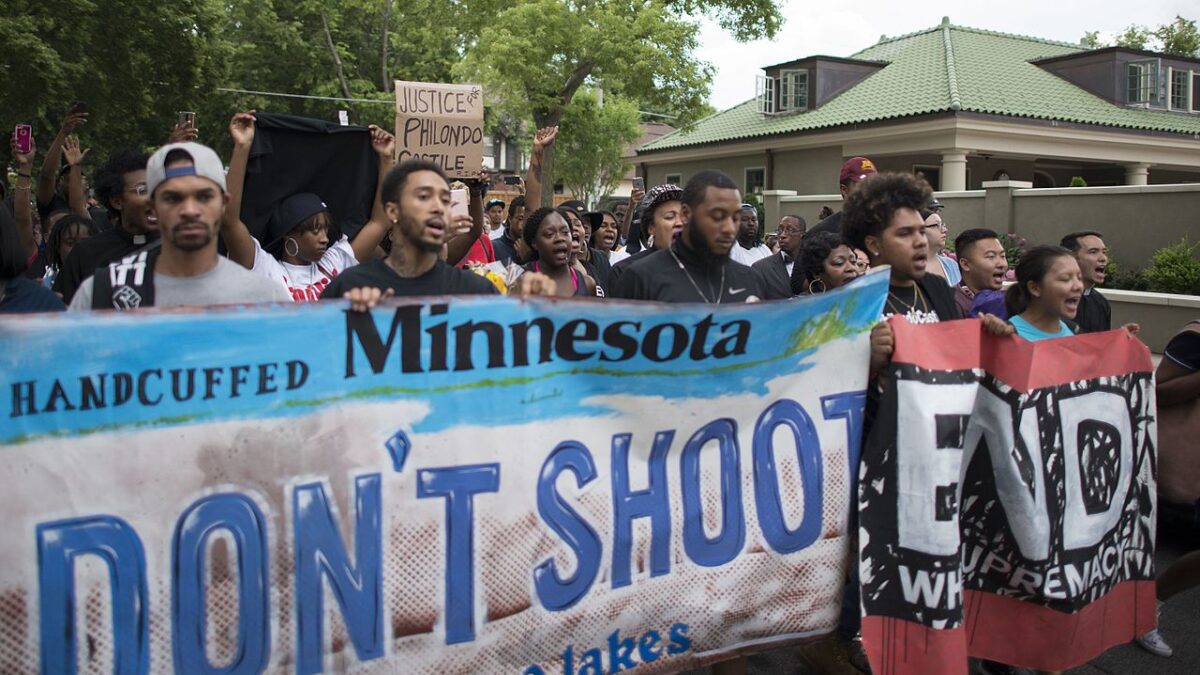The Washington Post has so far run three pieces in its opinion pages this month on the “wrongful” death of “innocent” Amir Locke, a 22-year-old black man. But not a single one of them references the name Mekhi Speed, Locke’s 17-year-old cousin.
That’s strange. Given that Speed is directly related to Locke’s fatal run-in with police, you’d think the people at the Post might find him worth mentioning, at least in passing.
A Hennepin County, Minn., judge last week unsealed search warrants related to the pre-dawn home raid that resulted in the shooting death of Locke. As authorities had stated, Locke isn’t named in the warrants that authorized the “no-knock” entry of three separate units in one apartment building.
Locked happened to be in one of those units, which building security said was accessible to Speed after he had asked for a key fob. Speed’s brother, Marlon, lived in that unit with his girlfriend and Mekhi had recently been inside, though he lived in one of the other apartments with his mother.
The police raid was conducted for the purpose of collecting evidence and potentially apprehending Speed, who was wanted for allegedly robbing, shooting, and killing 38-year-old Otis Elder in nearby St. Paul, Minn. A witness on the phone with Elder said he believed that Elder was in the process of a drug deal when he was shot.
Speed, who was already on probation for a separate shooting incident, was only one suspect wanted in relation to the killing of Elder. Another suspect wanted by authorities lived in the same apartment complex. According to police, both parties “have been actively involved in numerous crimes throughout the metro since at least November 2021, to include robberies, firearm incidents, and fleeing the police in a motor vehicle. A criminal history review of the known suspects in this homicide revealed that they have a history of violent crimes.”
In short order, everyone on scene the day of that deadly police raid seems to have been closely associated with a violent thief suspected of murder, as well as his accomplices. That doesn’t make them guilty, but it certainly raises questions about the circumstances that some writers at The Washington Post aren’t interested in exploring.
Police body camera footage from the raid shows cops using a key to unlock the entrance door of the unit where Locke was sleeping on a couch in the living area. Within 10 seconds, police descended on Locke, who emerges from underneath a blanket with a gun, before fatally shooting him three times.
Contrary to the padlock-shut media narrative that Amir Locke was a completely innocent casualty of a racially tinged police raid gone wrong, we actually have no idea yet if he was implicated in the homicide or any other one of Speed’s wrongdoings. It’s true that Locke wasn’t named in the search warrants, but that only relates to the Minneapolis police department’s search of the apartment complex.
The investigation is actually being conducted by Saint Paul. A spokesman for the city’s police confirmed with me Tuesday that that probe is ongoing and that all of its findings haven’t yet been made public, including in what capacity, if any, Locke was involved.
Will it turn out that Locke had nothing to do with Speed and was ultimately the innocent victim of a cosmic screw-up by law enforcement? Maybe! Is it possible, instead, that Locke knew exactly what he was getting into when he chose to stay at the home of his cousin, whose brother was wanted for murder? We don’t know.
The problem is that some people at The Washington Post, married to a fake narrative about police hunting down black people, are pretending they already do.









